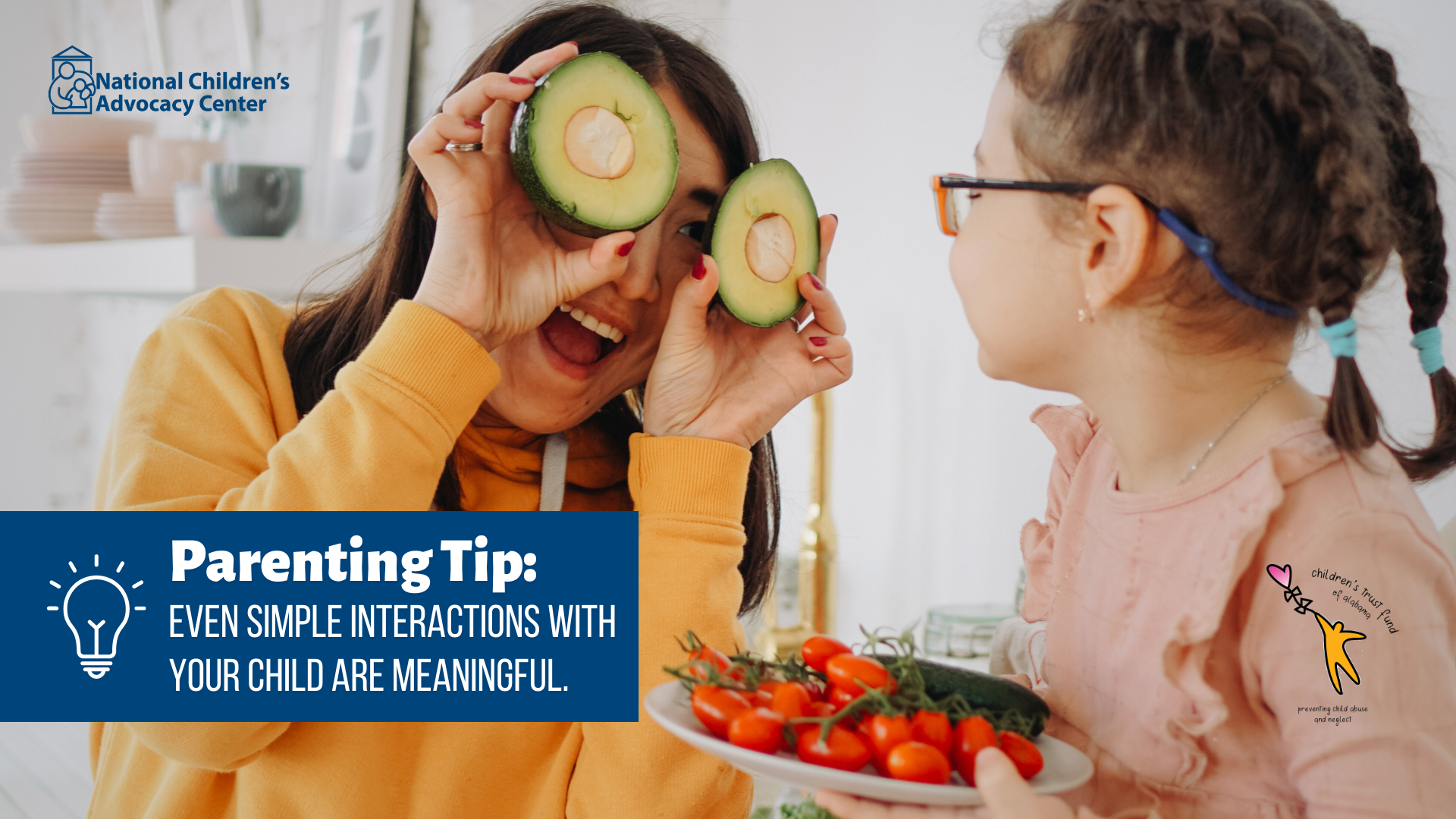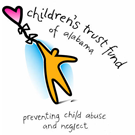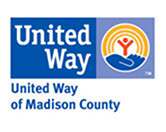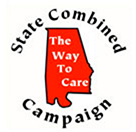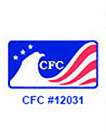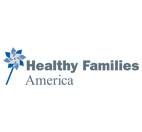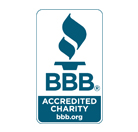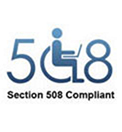Protective Factors Social Media Toolkit Series
This toolkit, Parenting Tips: Knowledge of Parenting , is the second of six child abuse and neglect prevention Protective Factors Social Media Toolkits developed by the National Children’s Advocacy Center. These toolkits are based on the Strengthening Families™ Protective Factor Framework (1) and the Protective Factors Conversation Guides for Partnering with Families (2).
Toolkits include tips and questions for parents and caregivers to encourage conversations that support positive parenting practices and promote social norms that help protect children from abuse and neglect.
Each toolkit is centered around one of the following protective factors:
- Nurturing and attachment
- Knowledge of parenting and child development
- Parental resilience
- Social connections
- Concrete supports in times of need
- Social and emotional competence of children
References:
1. Children’s Trust Fund Alliance. (2022). Protective factors. https://ctfalliance.org/protective-factors/
2. Administration for Children and Families Administration on Children, Youth and Families. (2021). Protective Factors – Conversations Guides for Partnering with Families. In 2021/2022 Prevention Resource Guide (pp. 50-75). Washington, DC: Author.
Instructions
For Text: Highlight text. While text is highlighted, right click and choose copy. Navigate to social media page and in space intended for text right click the mouse and choose paste.
CLICK HERE TO DOWNLOAD IMAGES. Save file to computer. Upload video to social media page from saved location.
Suggested Text
Image
You can learn what behavior is normal at different ages. Understanding normal child development can help you to provide age-appropriate limits, consistent rules and expectations, and chances for independence. Check out child development basics here: https://www.cdc.gov/ncbddd/childdevelopment/index.html.
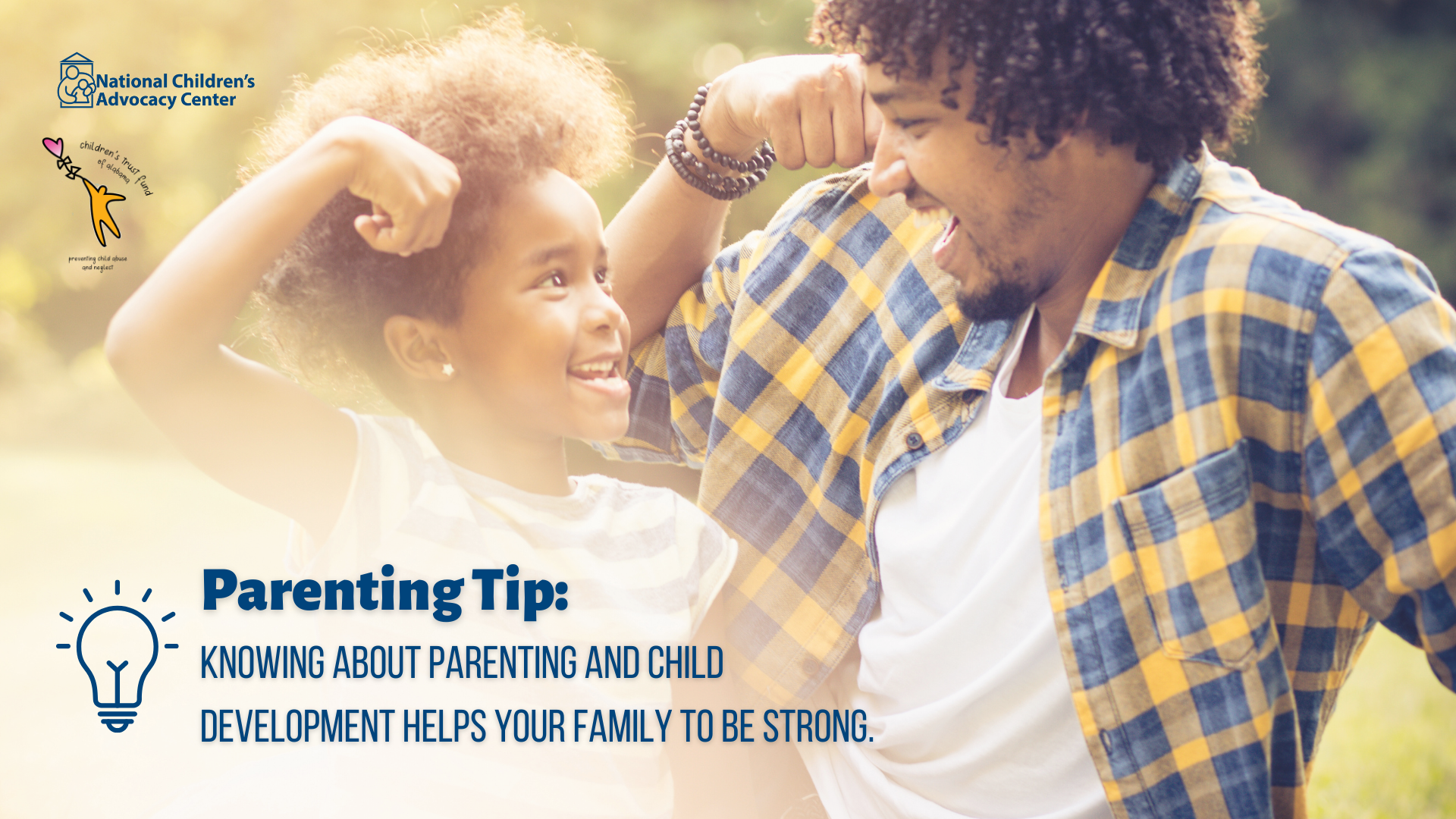
No parent knows everything about all aspects of child development. As children grow, you need to continue to learn and respond to your child’s new needs. Where do you go when you have questions about parenting?
Some helpful parenting resources include:
-American Academy of Pediatrics - healthychildren.org
-Alabama Dept of Early Childhood Education - https://children.alabama.gov/for-families/parent-resources/
-Center for Disease Control and Prevention (CDC)https://www.cdc.gov/parents/essentials/index.html
-American Psychological Association Resilience Tool - https://www.apa.org/topics/parenting/resilience-tip-tool?tab=1

Parenting is not one size fits all. You can adjust your style to fit the needs of your child. If your child has special needs, extra coaching and support may help.
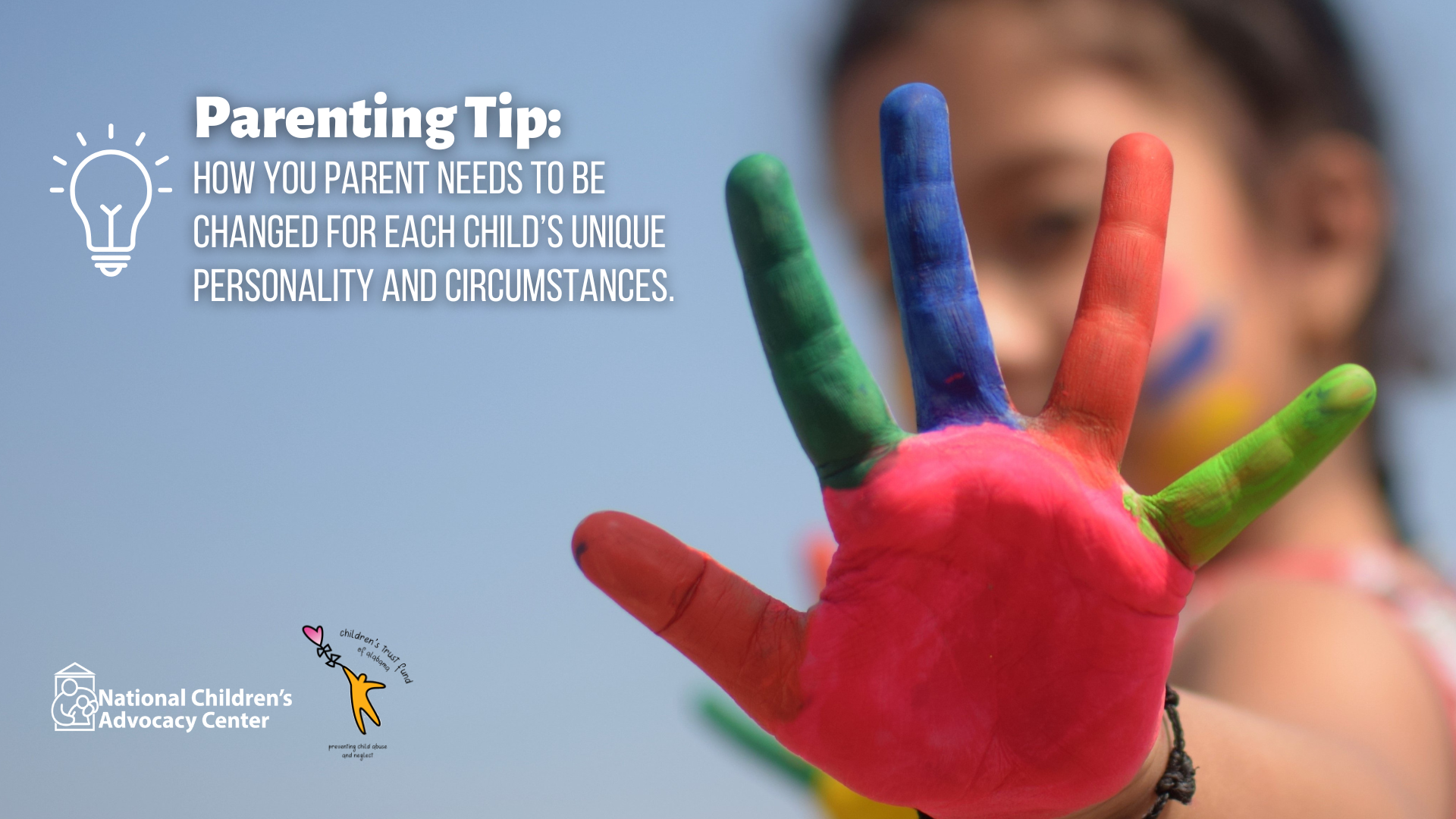
Kids are usually trying to tell us something when they act out. Think about a challenging behavior that you have seen in your child recently. What do you think your child feels or needs from you?
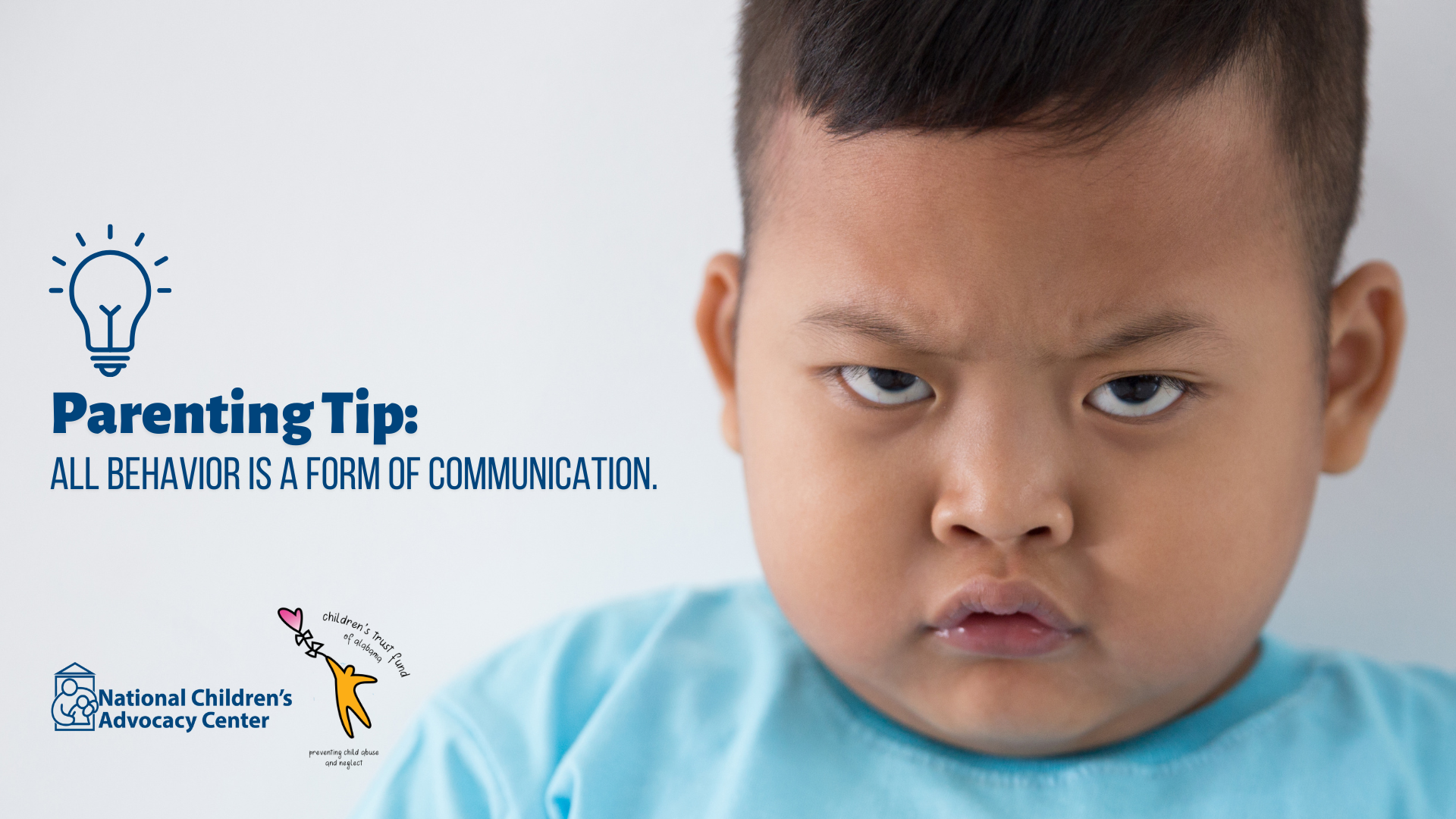
Every parent has things that they do well and other areas where they need help. What is going well with your child? What is not going well? Here are some positive options that can help with challenges: https://www.cdc.gov/ncbddd/childdevelopment/positiveparenting/
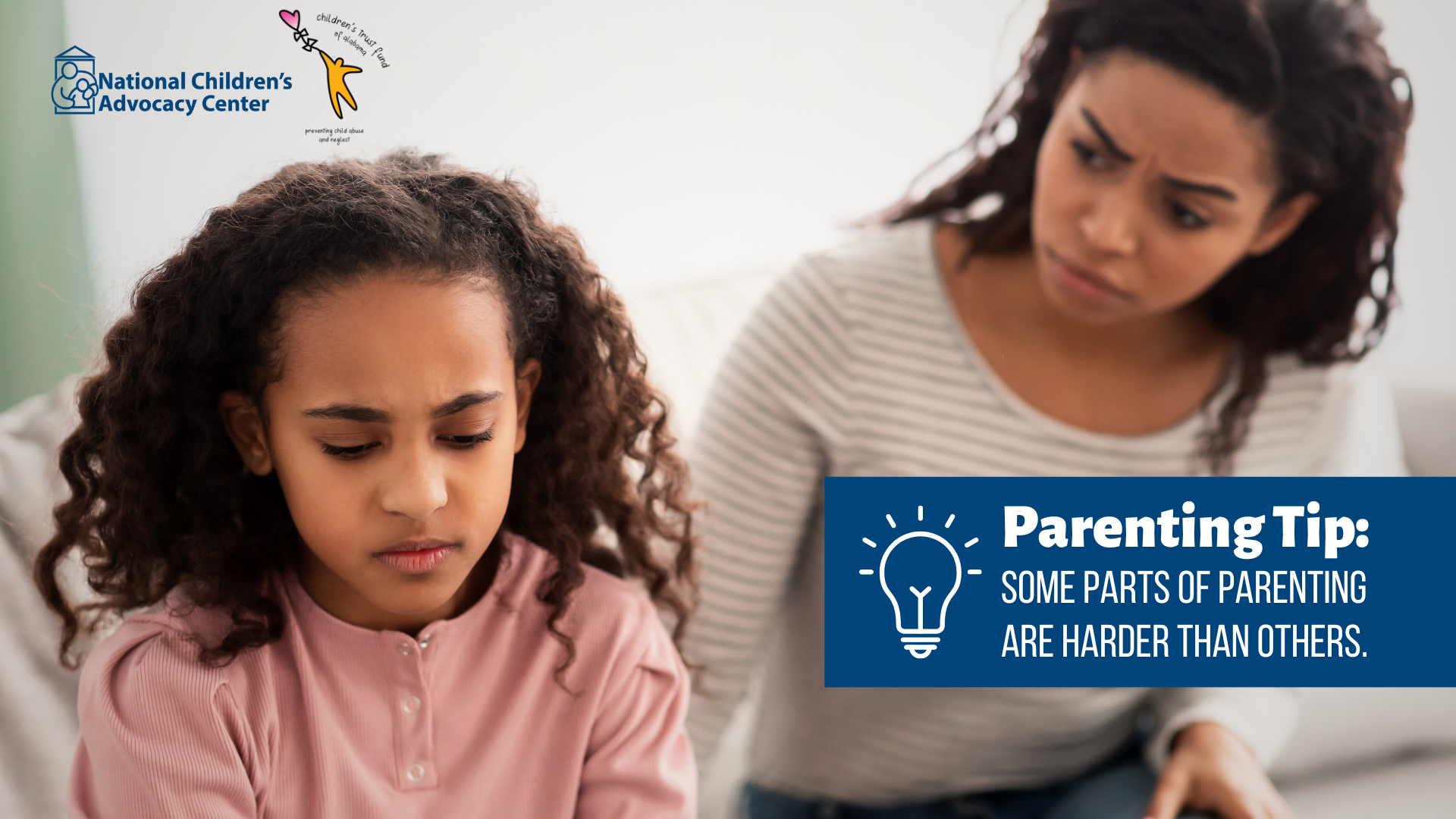
It is natural to copy what our parents did or to try to avoid some of their mistakes. How do you think the way you were parented affects your parenting?

It may take time to change habits, but you can try new things to make your family stronger. What is a small parenting change that you would like to make? What do you think will work best for your child and family?

Spending time with your child, playing with them, or connecting with them can be exactly what they need from you in a given moment.
